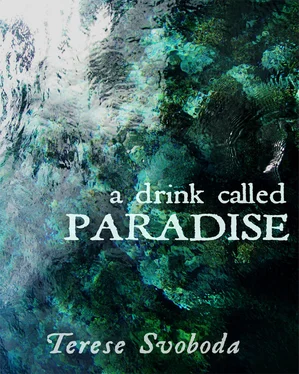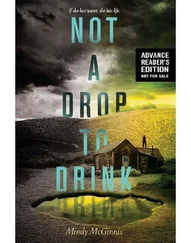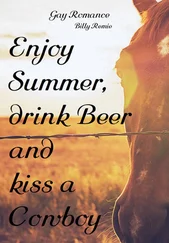I find myself sitting. I find myself making earplugs from the soft centers of flowers, then I curl on my side away from ants and mosquitoes and bush and I shut my eyes. I dream about nothing, I dream about living on a beautiful tropical island that I have made out of nothing, as advertised.
Flowers rain down. I can’t sleep anyway. I can just breathe in and out, I can just keep my eyes closed and dream. I sit up. I brush the flowers off with the dream, but they release their smell, the one sense I can’t block. I rub their petal silk into my hand and hold one to my face, and this is why people here go on living, this freshness.
I can’t not smell it.
Another bunch of petals falls.
I think I see a gray rat body in the thick of the leaves’ black against the dead-white sun. I unplug my ears to hear if it rustles in the leaves, and I crouch to run if it does, I do do that, I crouch out of a dream of a rat, of myself as rat. What I hear instead of rustles are giggles. I turn toward them and they’re in color, I can see them: giggles that turn into Veelu, who’s a branch over, giggling among others peering down from their branches.
I don’t pretend I don’t notice, I nod and I smile how I remember I smile. Is that Spreader? Breasts for Three? I can’t say hello , I can’t say good-bye .
I can’t be rude.
Why do you gather so many flowers? I almost say, What a waste of time it is, all these flower crowns and leis every morning, don’t you have anything else to do? Don’t you have to wail and tear at your hair and not eat? But I smell the petals, the way they change what you want.
Veelu monkeys down a limb. You think we are primitive, she says.
She doesn’t say this, she spits it.
I say, I don’t think that.
If you have no work to do, says Veelu, you are primitive — right?
I’d say you were advanced if you don’t work. I look at my hands. They are purple. Or is that the smell?
That’s not what people say, she says. That’s not it, not advanced.
All right, I say.
If you are primitive, you might as well be dead — that’s right, isn’t it? That’s what people think, isn’t it? Primitive means like an animal, free as an animal, easy to kill because you have nothing to do.
Maybe, out of jealousy, I say. Maybe that’s why people kill.
I could run away now. I’m still in my crouch. My beach isn’t far.
You are the ones who are primitive, she says. She breaks off a branch full of blossoms and points toward her belly. This is where the ghost you and your people make hurts me, she says. Six times it fills, and six times there’s nothing.
That angled branch over that part of her — this is exactly the place a maid on the main island pointed her dust mop when she warned me about what on this island — sex?
No.
Veelu shrieks her nothing , and at the end of it comes a cry, a short, high cry, a sound I’m not supposed to hear but have to.
The other women thread their flowers.
I keep my eyes shut against the smoke and walk into a palm. I rub my head where it hit and get into my crouch, gulping smoke in the dusk.
He comes out of the smoke, a god with a stick. Other men have their sticks, and they do a little dance in the smoke with the sticks upright, a dance men know. Then they slap each other on the back, that kind of slap, then they laugh.
They too have their names for each other, all mixed in with bits of their language and mine. Harry’s I can’t hear, but when it’s called he struts with his stick stuck up at the groin.
But all they want is smoke! They thrust a lit stick into the base of a palm, a hole where the sand has worn away, where its root clings. Then they thrust it again into a scrub tree where a hole shows bigger. Then they do it to a tree farther down, each time waiting, sticks in hand, the hollow tree up to the man’s arm, the one with the smoking torch.
And one man holds a pillowcase.
They go silent in the midst of their deflowering, except for clinical comments like over there or here , then they move on tiptoe down the beach, sticks up but wobbling, to another tree.
I follow them, using the smoke to hide behind. I don’t want Harry to think I’m watching him, I don’t want him to think I want to watch him. I don’t want him to think about me at all. He has his women.
The man with the pillowcase trails the others. He’s not far from me. It’s a deflated ghost he’s carrying, bunched in his dark hand. I try not to cough or to cough when he coughs. None of them knows I’m here.
At the fifth tree and after a hike, they all start to shake. They get so excited they shake and their sticks whack at the air, and then the pillowcase gets thrown down. At the seventh tree, they find what they want, but it finds a way to back off.
They light more torches that smoke. In the gloom with all their sticks, they act as one spider, all their sticks raised, the bag in the middle as a kind of globed head. They are determined now, with all their torches and sticks.
When it’s finally smoked out of the hole, they catch it in the pillowcase and beat it. The meat is better beaten, someone says to Harry, but the creature inside the case fights as if it knows what is better.
Someone has already brought a pot, someone has already scooped up water from a wave, someone now sets a lit stick to a pile of sticks, and what’s inside the bag is dropped into the water. Lacking a lid, the men cross their sticks over the top, they push what they’ve caught back into the pot.
Children chase the smoke that’s left, they chase it all around me. I shiver because I don’t run and shout after the smoke like they do. I want to keep on hiding.
Leaning against the tree, I hear from inside it another creature like the one they’re cooking, its sound moving like the wind’s inside a tree, the way the ocean sounds inside a shell. Of course I think that faint scrabbling is me, my blood inside my head, it is the kind of sound that you always think is your own, the sound of fear. And then the sound stops.
They eat it, they crack its shell, they eat more of it, the claws, they litter the beach with its pieces. There’s only one for all of them, but the meat is good, very good. The children pick up the claws and chase each other through the smoke with them, they scrabble sideways, knowing how to move with that kind of claw.
A shadow fixes me. I’m already saying, What? when Harry pulls me from behind my hiding place. He brushes the sand off me. It was one of the last ones, he says without saying hello, as if he knew I was behind the tree all along.
One of the last ones? I repeat.
A nice red it turned, he says. See, there’s a bit of the claw left.
The children try to bite each other with the claw.
What if you ate the last one?
I suppose you could let it die of old age, he says. There’s always that. It was tough enough anyway. What’s last anyway but dead?
The shells protect them, protected them from what fell.
Maybe they ate what fell, he says. Maybe that’s why it was the last, or could be. Maybe that’s why it was tough.
I watch the men pour a crab’s worth of water from the pot into shells. No, thank you, I say when Harry offers his.
A moon rises free of the water while Harry and the others and the children pretend with their sticks to couple again with the trees, to bring forth the crabs, to give birth to them and eat them. Even the smallest of them pretends with his stick. Then — who calls them? — all of them go off.
Harry is going off too when he stops where I sit, free of the sand he has brushed from me, watching the moon and none of them, and he asks whether I can dance? He says none of the ladies he has can.
Читать дальше












